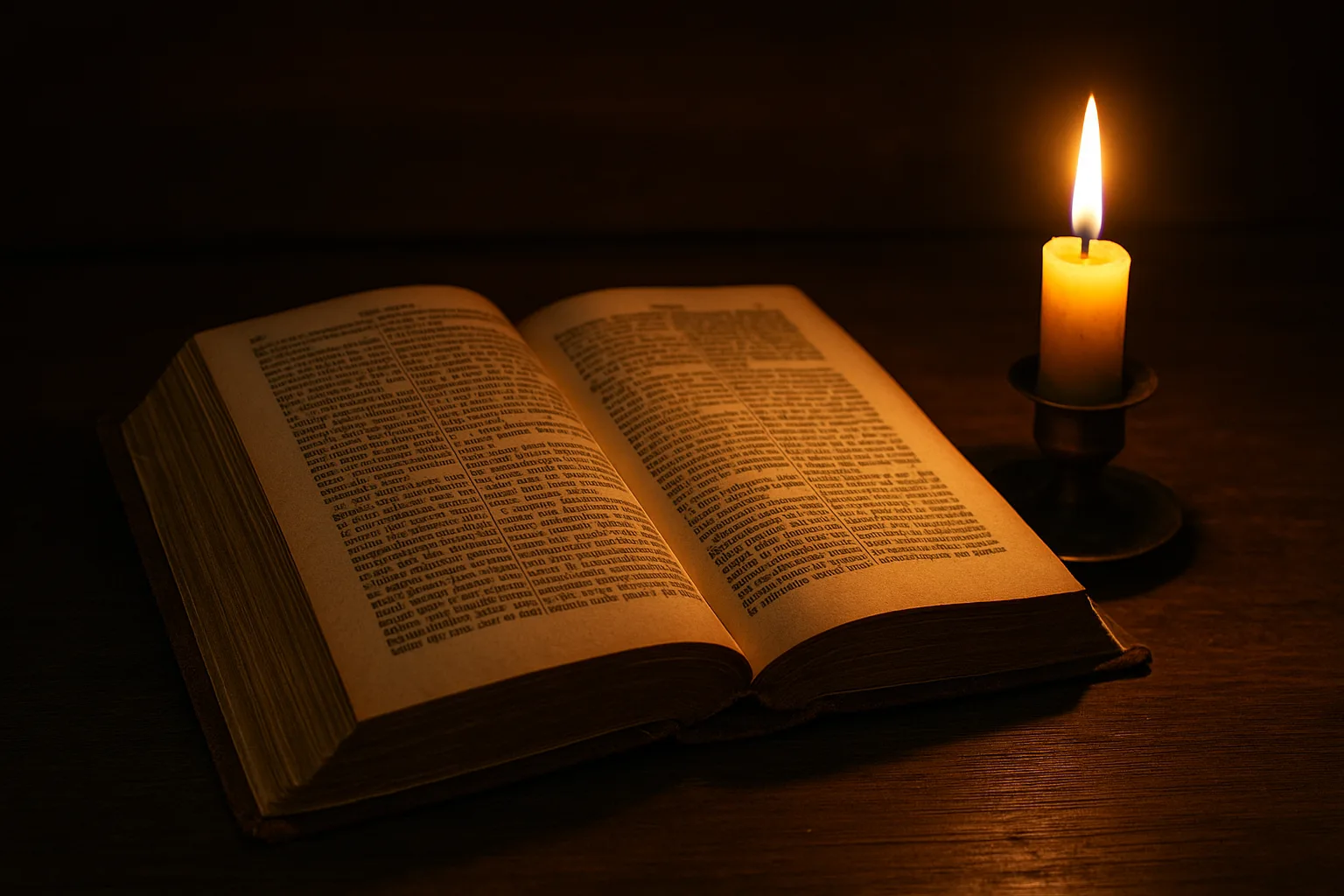⏱️ Estimated Reading Time: 7 min read
Lessons from the Puritans on Prayer
by Joshua Mills
Introduction
The Puritans understood prayer as “the vital breath of our spiritual life unto God.”1 The practice of private prayer and meditation was common among all Puritans; however, little has been written on their theology of prayer. This article develops a Puritan theology of prayer, drawing primarily from The Valley of Vision: A Collection of Puritan Prayers & Devotions by Arthur Bennett. The Puritans often encouraged their congregations to put their private prayer thoughts on paper and vocalize them.2 As a result, a booklet of inspiring Puritan prayers emerged for the use of the church. These aspirational units of prayer are to be used as a springboard for one’s own prayer life.3
To develop a Puritan theology of prayer, we will answer three questions: What was their motivation? What was their method? And what was their content? Each question will be answered through a study of The Valley of Vision. Through this, it will be clear that the Puritans built their prayer life upon a proper view and understanding of God and His Word.
Motivation
What motivated the Puritans to pray? As one reads The Valley of Vision, it becomes clear that their main motivation was the glory of God. They realized that they could not glorify God on their own; therefore, they sought Him earnestly in prayer. Specifically, they sought the glory of God in both the edification of the church and the salvation of sinners. The Puritans knew that man’s chief end is to glorify God and enjoy personal communion with Him. Therefore, the greatest privilege and blessing for a person is to have communion with God. As a result, the Puritans sought God for this reality, focusing heavily on God building, strengthening, purifying, and glorifying His church.
First, the Puritans realized that their sufficiency to build God’s kingdom was not in themselves but in their great God. As one Puritan wrote:
O God, the Author of all good, I come to thee for the grace another day will require for its duties and events.4
They understood that they had been called to an impossible task on their own. Thus, they were motivated to rely upon God in prayer and resist the inner tendency to depend on human ability. They knew that apart from Christ and His Spirit, they could do nothing (John 15:5). This realization of their utter dependency upon God—even for the daily tasks of the Christian life—drove them to their knees. They knew that to grow in grace, they must first go to the God of grace.
Secondly, they were motivated by the outward needs of the world. The Puritans’ prayers highlighted the glory of God in the salvation of sinners. Since Scripture molded their prayers, their motivation was often evangelistic:
Sovereign God, thy cause, not my own, engages my heart, and I appeal to thee with greatest freedom to set up thy kingdom in every place where Satan reigns; Glorify thyself and I shall rejoice.5
They valued the souls of their neighbors and prayed for the extension of the gospel around the entire world. In short, the two primary motivations for prayer in the Puritan era were the edification of the church and the salvation of sinners.
Method
In this section, we will discuss two methods of prayer that shaped the Puritan prayer life: the Lord’s Prayer and the promises of God. Both methods were derived from their conviction that God’s Word is the prayer book of the church.
The Lord’s Prayer as a Pattern
The disciples asked Jesus to teach them to pray, and He gave them a pattern to follow (Luke 11:1). The Puritans were convinced that the Lord’s Prayer provided the key pattern for the church. Therefore, each prayer in The Valley of Vision reflects aspects of the Lord’s Prayer.
Each prayer began with upward reverence, focusing on God’s character: “Our Father in heaven, hallowed be your name” (Matt. 6:9). The Puritans would often take an attribute of God and worship Him: He is the “Divine Redeemer,” the “Saviour of sinners,” and the “changeless God.”6
Next, they would confess their sins and yield to God’s will: “Your kingdom come, your will be done” (Matt. 6:10):
I humble myself for faculties misused, opportunities neglected, words ill-advised.7
They prayed that God would set up His kingdom “in every place where Satan reigns.”8
Then came inward petitions: “Give us this day our daily bread, and forgive us our debts” (Matt. 6:11–12). Their prayers often expressed dependence:
Help my infirmities; I am blind, be thou my light; ignorant, be thou my wisdom; self-willed, be thou my mind.9
Finally, their prayers concluded with a plea for strength against temptation: “And lead us not into temptation, but deliver us from evil” (Matt. 6:13):
Fit me to be totally resigned to the denial of pleasures I desire, and to be content to spend my time with thee.10
They often ended with a doxology:
I bless and adore thee, the eternal God, for the comfort of these thoughts, the joy of these hopes.11
The Promises of God
The Puritans were also famous for turning the promises of God into prayers. Though The Valley of Vision does not cite specific verses, it is evident that their prayers were deeply rooted in Scripture:
Christ and his Word alone remain unshaken.12
All thy promises in Christ Jesus are yea and amen, and all shall be fulfilled.13
Confident in God’s faithfulness, they came to Him with the promises in their hand. Whatever the occasion, they would find a promise and pray it back to God, knowing they were praying according to His will.
Content
As one scans through The Valley of Vision, it becomes clear that there are many categories of prayer: redemption, penitence, petitions, and adoration. To understand the content, we must ask: Who is the source of the prayer? To whom are the prayers addressed? What can we learn about God and man?
The source of true prayer is God Himself. Romans 8:26 declares:
Likewise the Spirit helps us in our weakness. For we do not know what to pray for as we ought, but the Spirit himself intercedes for us with groanings too deep for words.
The Puritans knew that if they were to pray, it must be by the Spirit. As they prayed:
Teach me to live by prayer… Let me know that the work of prayer is to bring my will to thine.14
They poured out their hearts to God the Father through Jesus Christ in the strength of the Spirit:
Gracious LORD, thy name is love; in love receive my prayer… Look to the cross of thy beloved Son, and view the preciousness of his atoning blood.16
From their prayers, we learn two lessons. First, though burdened by sin, they expressed hope rooted in God’s grace:
Give me to believe that thou canst do for me more than I ask or think, and that, though I backslide, thy love will never let me go.18
Second, they maintained an eschatological hope despite trials, looking forward to the day when sin would reign no more.
Conclusion
Prayer was the life and breath of Puritan devotion. Though they suffered much, they lived with an eternal perspective, trusting the all-gracious God who is faithful to His Word. Any Christian would do well to study their example. It is my prayer that God would bring us back to the simplicity and power of a life rooted in prayer and the Word (Acts 6:4).
This article is part of our series The Discipline and Power of Prayer at Servants of Grace.
Check out this helpful book on Taking Hold of God: Reformed and Puritan Perspectives on Prayer: Various Authors at Ligonier Ministries Store
Notes
- John Owen, The Work of the Spirit, Vol 4 of The Works of John Owen, (Banner of Truth, 2017), p. 252.
- Arthur Bennett, ed., The Valley of Vision: A Collection of Puritan Prayers & Devotions, (Banner of Truth, 2015), p. vii.
- Ibid., p. viii.
- Ibid., p. 118.
- Ibid., p. 175.
- Ibid., pp. 55–72.
- Ibid., p. 178.
- Ibid., p. 175.
- Ibid., pp. 102–103.
- Ibid., p. 176.
- Ibid., p. 164.
- Ibid., p. 17.
- Ibid., p. 130.
- Ibid., p. 145.
- Ibid., p. 146.
- Ibid., p. 147.
- Ibid., p. 86.
- Ibid., p. 86.
Joshua J. Mills is married to his beloved Kyla and they have two children: Isaac and Lydia. Outside of the home, Joshua has the privilege of serving as pastor at Trinity Baptist Church (Burlington, Ontario) and as a guest lecturer through Carey International University of Theology.




